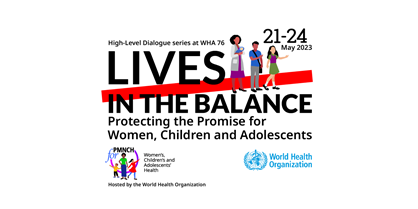“COVID-19, conflict, and the climate and cost-of-living crises keep exacerbating setbacks for children’s, adolescents’ and women’s health, rights and future prospects. Food insecurity, hunger, child marriage, risks from intimate partner violence, and adolescent depression and anxiety have all increased as noted in the Protect the Promise – 2022 Global Strategy for Women’s, Children’s and Adolescents’ Health (2016-2030) (Global Strategy) progress report and this year’s WHA report on implementation of the Global Strategy.
Since the start of the global pandemic, 10.5 million children lost a parent or caregiver to COVID-19. In 2021, an estimated 5 million children died before their fifth birthday and another 2.1 million children and youth aged between 5–24 years lost their lives in 2021, according to the latest estimates. Women’s rights and wellbeing are at severe risk in many countries around the world. Alarmingly, maternal deaths have either increased or stagnated in nearly all regions of the world and in 2021, and the number of completely unvaccinated children increased by 5 million compared to 2019.
‘At the core of our unkept promise is the failure to address the gaping inequities at the root of global crises, from the COVID-19 pandemic to conflicts and the climate emergency.’ said Antonio Guterres, United Nations Secretary-General at the launch of the Protect the Promise report.
Objective
As the health community meets at the World Health Assembly, and the world leaders’ review progress against SDGs and convene on UHC and Pandemic response and preparedness later in 2023, the focus of this dialogue is to make the case and discuss practical actions countries and partners can take to improve health and rights of women, children and adolescents across the life-course with urgency and priority it deserves.
